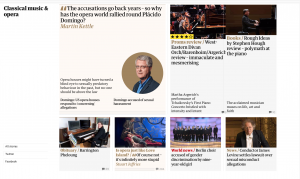This post is written by network contributor Dr. Emilie Capulet.
“Authenticity will be the buzzword of the twenty-first century”
–Michael Crichton, Timeline (1999).
Never more than today has the search for authenticity been headline news. It affects our political choices (Shane, 2018), the music we listen to (Peterson, 1997; Speers, 2017; Barker and Taylor, 2007; Dolan, 2010), the artwork we appreciate (Benjamin, 1969; Jenson, 1994), the food we eat (Zukin, 2008), the holidays we go on (Reisinger and Steiner, 2006) and the way we portray our lives on social media (Salisbury and Pooley, 2017). In fiction, authenticity is, for obvious reasons, a more problematic concept, and we find that authenticity is not just linked to notions of plausibility (Stoltzfus, 1988), realism (Funk et al, 2012) and historical accuracy (Brantly, 2017), but it raises the issue of a particular understanding of the text in relation to the figure of the author (Gunning, 2012), or what Ana María Sánchez-Arce has argued is “the discourse or grand narrative that legitimizes knowledge on the grounds of it originating from essential identity characteristics or subjectivities” (2007: 143). Authenticity is felt when in the author’s personal voice, we recognize our own unique individuality, often within a community of individuals who share that same narrative. For this reason, authenticity is strongly linked to the notions of identity and common shared values. Speaking about authenticity in the performance of popular music songs, Allan Moore has argued that “authenticity of expression […] arises when the originator (composer, performer) succeeds in conveying the impression that her utterance is one of integrity, that it represents an attempt to communicate unmediated form with an audience” (2002: 214). In other words, if we trust the legitimizing framework of a shared perception of an artist’s artistic sincerity and their integrity as a story-teller, we consider their voice as being authentic, even if the work itself is an artificial construct.
Authenticity is a concept which plays a significant theoretical role in two particular artistic areas: transnational and transcultural writing (cf. Dagnino, 2012; Brantly, 2017) and musical performance. As musicologist Richard Taruskin has argued, authenticity “is knowing what you mean and whence comes that knowledge. And more than that, even, authenticity is knowing what you are, and acting in accordance with that knowledge” (1984: 3). Moving away from the objective reality/authenticity correlation of the positivist approach which searches for (an elusive) truth within the work itself, from a constructivist point of view, authenticity will be found at the crossroads of subjectivity and social networks. Within this context, in the words of Allan Moore, “in acknowledging that authenticity is ascribed to, rather than inscribed in, a performance, it is beneficial to ask who, rather than what, is being authenticated by that performance” (2002: 220).
Contemporary novelist, Booker Prize and Nobel Prize winner, Kazuo Ishiguro is at once considered a transnational/transcultural author (Walkowitz, 2007), and one who is profoundly musical. He once said that:
I used to see myself as some sort of musician type but there came a point when I thought: actually, this isn’t me at all. I’m much less glamorous. I’m one of these people with corduroy jackets with elbow patches. It was a real comedown. (2015)
Here, Ishiguro is arguing that the authentic Ishiguro is fundamentally musical — having only rejected the craft (or “glamour”) of the musician (music’s inauthenticity) to keep the essence of music within his writing. So doing, his musical inspiration serves to validate the authenticity of his writer’s voice, and also serves to affirm the notion that music is intrinsically authentic as a true representation of our subjectivity and emotions.
In this presentation, I will be focussing on Ishiguro’s five short stories, Nocturnes, subtitled ‘Fives Stories of Music and Nightfall’, published in 2009, and the way in which he creates a correlation between the musical experiences featured in the stories and his characters’ ambivalent relation with concepts of authenticity and identity. I will be arguing that Ishiguro is challenging the traditional representation of classical music by placing it within a popular music framework and using authenticity to blur the traditional distinctions between art cultures. Whilst Ishiguro offers us a mise-en-scène of musical practices/authenticities within the fictional worlds he is creating, he is also encoding the authenticity of his own voice within a metanarrative on artistic creation understood as musical performance.
References:
Barker, H. and Taylor, Y. (2007) Faking it: the quest for authenticity in popular music. New York: Norton.
Brantly, S. (2017) The Historical Novel, Transnationalism, and the Postmodern Era: Presenting the Past. Abingdon: Routledge.
Benjamin, W. (1969) The Work of Art in the Age of Mechanical Reproduction, In: Illuminations, ed. Hannah Arendt, transl. Harry Zohn, from the 1935 essay. New York: Schocken Books.
Dagnino, A. (2012) ‘Transcultural Writers and Transcultural Literature in the Age of Global Modernity.’ Transnational Literature Vol. 4 no. 2
Dolan, E. I. (2010). ‘“…This little ukulele tells the truth”: Indie pop and kitsch authenticity.’ Popular Music, 29 (3), 457–469.
Funk, W., Groß, F. and Huber, I. (2012) The Aesthetics of Authenticity: Medial Constructions of the Real. Bielefeld: Transcript Verlag.
Gunning, D. (2012) ‘Ethnicity, Authenticity, and Empathy in the Realist Novel and Its Alternatives, Contemporary Literature’, Fiction Since 200: Post Millenial Commitments, Vol. 53, No. 4, 779-813
Ishiguro, K. (2015) Interview in The Guardian with Kate Kellaway
https://www.theguardian.com/books/2015/mar/15/kazuo-ishiguro-i-used-to-see-myself-as-a-musician[accessed 30 Aug 2019)
Ishiguro, K. (2009) Nocturnes. London: Faber and Faber
Jenson, R. (1994) Marketing Modernism in Fin-de-siècle Europe. Princeton: Princeton University Press.
Moore, A. (2002) ‘Authenticity as authentication’. Popular Music Volume 2 1/2, 209-223
Peterson, R. (1997) Creating country music: fabricating authenticity.Chicago: Chicago University Press.
Reisinger, Y. and Steiner, C. J. (2006). ‘Understanding existential authenticity’, Annals of Tourism Research 33 (2), 299-318.
Salisbury, M. and Pooley, J. D. (2017) ‘The #nofilter Self: The Contest for Authenticity among Social Networking Sites, 2002–2016’. Social Science: 6 (1)
Sánchez-Arce, A. M. (2007) ‘Authenticism/ or the Authority of Authenticity’, Mosaic 40.3 (2007): 139-55.
Shane, T. (2018) ‘The Semiotics of Authenticity: Indexicality in Donald Trump’s Tweets’, Social Media + Society, 1–14
Speers, L. (2017) Hip-Hop Authenticity and the London Scene: Living Out Authenticity in Popular Music.Abingdon: Routledge.
Stoltzfus, B. (1988). ‘The Language of Autobiography and Fiction: Gide, Barthes, and Robbe-Grillet’. International Fiction Review, 15 (1).
Taruskin, R. (1984) ‘The Authenticity Movement Can Become a Positivistic Purgatory, Literalistic and Dehumanizing’. Early Music,12 (1), 3-12
Walkowitz, R. L. (2007) ‘Unimaginable Largeness: Kazuo Ishiguro, Translation, and the New World Literature.’ Novel 40.3, 216-39
Zukin, S. (2008) ‘Consuming Authenticity’, Cultural Studies, 22: 5, 724-748
Emilie Capulet is an award-winning international concert pianist, lecturer, writer and musicologist. She regularly performs as soloist and chamber musician in festivals worldwide and has been broadcast on BBC Radio 3, Radio Canada and France Bleu Provence. She has recorded works by Beethoven, Chopin and Henri Tomasi. Holding an interdisciplinary PhD on musical aesthetics in Modernist literature, her research on transmediality, historical and contemporary performance practices, pedagogy, and music in healthcare has been published in leading peer-reviewed journals as well as other high-impact media and public events and has been funded by the Arts and Humanities Research Council and the Arts Council UK. She regularly appears on Sky News International as one of their music experts. Emilie is Head of Classical Performance and MMus Performance Course Leader at the London College of Music, University of West London.




